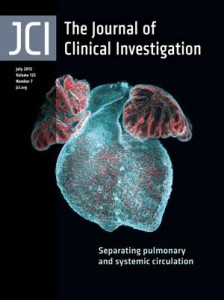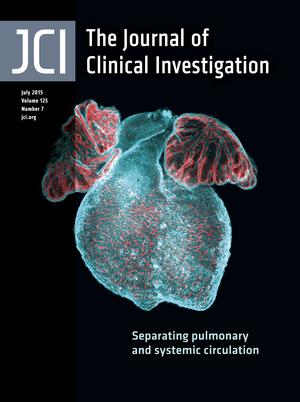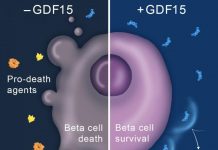Study shows that people with new-onset type 1 diabetes who took two courses of alefacept soon after being diagnosed showed preserved beta cell function after two years.

Individuals with new-onset type 1 diabetes who took two courses of alefacept (Amevive®, Astellas Pharma Inc.) soon after diagnosis show preserved beta cell function after two years compared to those who received a placebo.
The positive results of the Immune Tolerance Network’s (ITN) T1DAL study [Inducing Remission in New Onset T1DM with Alefacept (Amevive®)], led by Mark Rigby, MD, PhD, of Indiana University were published today in the Journal of Clinical Investigation.
The T1DAL study was a Phase II, randomized, placebo-controlled, double-blind, multicenter clinical trial testing alefacept, an engineered fusion protein, in new-onset type 1 diabetes patients between 12 and 35 years of age.
Forty-nine participants were randomized to receive either alefacept (N=33) or a placebo (N=16).
Continue Reading Below ↓↓↓
Participants received two 12-week courses of treatment (with a 12-week gap in between), and were followed out to two years to monitor clinical and metabolic effects after stopping treatment. Endpoints included changes in C-peptide response (a measure of insulin production and beta cell function), insulin dose requirements, and rates of hypoglycemia in the two groups.
The alefacept-treated group showed significantly lower decline in C-peptide production, indicating greater preservation of beta cell function, from baseline to two years compared to the placebo group, as measured by a four-hour mixed meal tolerance test (average decrease of 0.134 nmol/l for alefacept vs. 0.368 nmol/l for placebo, p=0.002). Rates of C-peptide decline varied among individuals in the alefacept group, but 30% (9 of 30 evaluable participants) showed no decline at all and were considered “complete responders” (only 1 of 12 participants in the placebo group met this criteria).
Importantly, the alefacept group also exhibited overall better metabolic function with lower insulin requirements (0.43 units/kg/day vs. 0.60 units/kg/day, p=0.002) and fewer major hypoglycemic events (9.6 events/patient/year vs. 19.1 events/patient/year, p<0.001) compared to the placebo group. These clinical benefits were associated with an excellent safety profile, with no drug-associated serious adverse events.
“The two-year results are remarkable because we observed ongoing preservation of C-peptide secretion 15 months after cessation of treatment,” said Mario Ehlers, MD, PhD, the ITN Clinical Trial Physician for T1DAL. “Moreover, compared to the placebo group, the patients who received alefacept had significantly lower insulin requirements and a significant 50% reduction in major hypoglycemic events (defined as a blood glucose level < 55 mg/dL), even at 2 years. This is the first time that documented rates of hypoglycemia – using standardized home glucometers in all patients – have shown a reduction in major hypoglycemic events following an immune intervention in new-onset T1D patients. This is important because frequent hypoglycemia is a common and serious complication in this disease.”
Type 1 diabetes is an autoimmune disease driven by self-reactive immune T cells, which destroy insulin-producing beta cells in the pancreas.
Previously, immune-targeted therapies tested in type 1 diabetes have had modest success in temporarily preserving beta cell function, but many have negative side effects related to broad immune suppression and none have been able to stop disease progression permanently.
Alefacept interferes with T cell activation by specifically targeting the CD2 surface marker found on T cells. ITN investigators hypothesized that alefacept may be able to induce a more durable clinical response by disrupting specific key aspects of the immune response involved in disease pathogenesis.
Analyses from blood samples collected from T1DAL participants revealed that alefacept selectively reduced certain populations of memory T cells that lead to inflammatory effects while sparing the protective, regulatory T cells. This favorable balance between regulatory and inflammatory T cell subsets may be part of the mechanism underlying the observed clinical benefits.
“Achieving long-term benefit following a short course of therapy is a challenging goal,” noted Gerald Nepom, MD, PhD, director of the ITN, which conducted the trial. “Detailed analysis of the T cell types present in the blood of those who responded to the treatment will help us identify the best way to improve this type of immune therapy for patients with type 1 diabetes and potentially other autoimmune diseases.”
The T1DAL study demonstrated that a short course of a well-tolerated drug can interfere with immune activation in a targeted way to create sustained preservation of endogenous insulin production in certain individuals with new-onset type 1 diabetes. Maintaining even a small level of natural insulin production can provide significant long-term benefits, and future studies will attempt to create even longer-lasting responses by combining alefacept with other therapeutic agents.
Continue Reading Below ↓↓↓
Source: Benaroya Research Institute
Journal: Journal of Clinical Investigation










